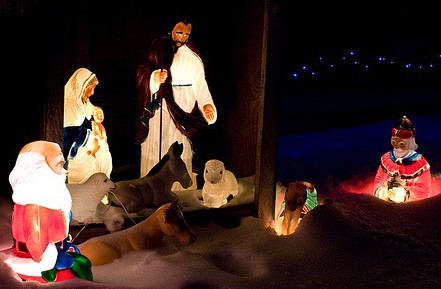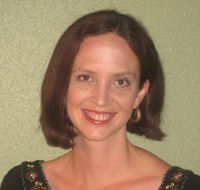My daughter the Santa believer

We tried to be those parents. We tried to tell our daughter that Santa Claus isn't real.
We knew that this could get her in trouble at some point, that chaos would ensue if she destroyed the innocent faith of her kindergarten classmates with a declaration of Santa-atheism. Yet we did it anyway, perhaps to always tell her the truth about the world, perhaps to preserve the religious focus of the holiday. Whatever our reasons, the project didn't work.
Early on she went along with our attempts. She even laughed at the silliness of Grandpa suggesting we put out milk and cookies on Christmas Eve. But as she matured to the more social age of four, everything changed. Her assertions to her Sunday school class and preschool that Santa isn't real were met with uniform disagreement; she was outnumbered. Every single other child she knew believed in Santa, so the logical conclusion must be that her parents were wrong. She informed us without hesitation.
But around the same time, my daughter decided that the Christmas story--as in the whole Mary, Joseph, angels and baby Jesus tale--is just too far-fetched to be real. So I was stuck with a preschooler who believed in Santa but not in the Bible.
Strangely enough, I was okay with that. I didn't care that the preschool constituency was against me; my daughter's conversion woke me up to what it means to convey truth to her. I realized that our understandings of truth are communally created--the truths I want my daughter to understand have to make sense within the communal narrative of her world. The truth of the Christmas story is about more than historical veracity. And the Santa story provides space for meaning as well.
There will be time to explore the complexities of the historical Christmas story, but for now I am content to work within my daughter's understanding of the world to kindle faith and encourage a love of meaningful truths.






